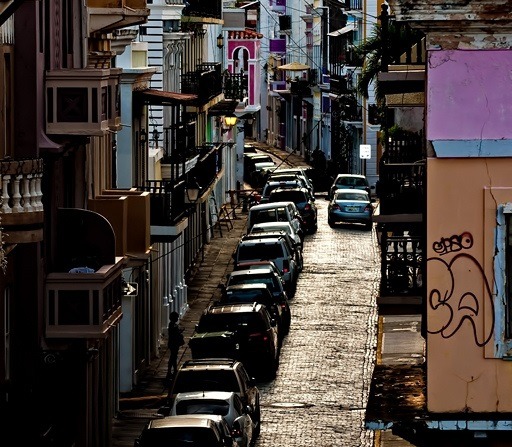
October 22, 2015; Reuters
Some stories about the perverse behavior that emanates from our society and its economic system are so macabre as to beggar disbelief, but they are true and, as a result, truly awful. According to Jessica DiNapoli writing for Reuters, one strategy for rebuilding the bankrupt economy of Puerto Rico is through encouraging a medical tourism industry. What that apparently means is wealthy people flying to Puerto Rico for organ transplants made possible by a large supply of organs due to the island’s hefty rate of murders and non-negligent homicides—19.2 per 100,000 in 2014, compared to 4.5 per 100,000 in the mainland United States.
“That translates into a pool of donors in the 18–30 age range unmatched in the mainland,” DiNapoli writes, citing Dr. Ivan Gonzalez-Cancel, the director of the heart transplant center at the Cardiovascular Center of Puerto Rico and the Caribbean. Gonzalez-Cancel explains, “The donors (are) victims of car accidents or gunshot wounds to the head, because Puerto Rico, sadly, we have a very high crime rate.” The result is organ donation rates in Puerto Rico much higher than one might expect, which leads to organ transplants that can cost half what they do on the mainland.
Banking on people traveling to the island for transplants and other lower cost medical procedures, during which time they spend huge sums on hotels, food, and transportation, DiNapoli writes, “Puerto Rico is trying to build its medical tourism industry, from a current level of about $80 million a year to $300 million by 2017, as part of efforts to heal its chronically sick economy.”
Sign up for our free newsletters
Subscribe to NPQ's newsletters to have our top stories delivered directly to your inbox.
By signing up, you agree to our privacy policy and terms of use, and to receive messages from NPQ and our partners.
Consider the transformation of Puerto Rico into a haven for millionaires to buy specialty medical treatments that regular people wouldn’t likely be able to access or purchase without taking on a lifetime of medical debt (as some people in the Reuters story seem to have done out of desperation while waiting for organ transplants on the mainland). It is, in a way, the ultimate fulfillment of the privatization of medical care in American society, as efforts to make medical care accessible and affordable to everyone are under attack in Congress and on the presidential stump. (Note candidate Ben Carson’s proposal to offer Health Savings Accounts that he hopes and expects will end up replacing Medicare and Medicaid.)
Contrast the medical tourism of rich transplant seekers with the crisis of healthcare in Puerto Rico. A group called the Puerto Rico Healthcare Crisis Coalition is protesting federal policies that pay Puerto Rico’s Medicare Advantage program at only 60 percent of the rate paid in the states, Medicare reimbursement rates for doctors 40 percent lower than in the states, and a Medicaid reimbursement that is 70 percent lower than any other state’s. The transplant tourism story is not just a telling indication of the insouciant response of the American economy and polity to Puerto Rico’s financial crisis, but a tale of the privatization of medical care: one system—still—that functions for people with money, the other for the rest of Americans who have to wait and hope that they’ll get the treatment they need.
Attitudes toward the resolution of the problems of Puerto Rico seem to maintain a second-class economy for Puerto Ricans, whether they are donating or selling organs or not. In recent testimony before the Senate Finance Committee, Douglas Holtz-Eakin, a former campaign advisor for Senator John McCain’s presidential run and currently the president of the American Action Forum, a conservative political think tank, recommended lowering Puerto Rico’s minimum wage to perhaps around $4.50 an hour. Holtz-Eakin and others also advocate various forms of privatization of public services—in Holtz-Eakin’s case, the power utility.
The Obama administration has at long last issued a proposal to address Puerto Rico’s economic and fiscal crisis, with provisions that would deal with the Medicaid reimbursement inequities and expand the Earned Income Tax Credit to the island’s working poor. The plan doesn’t look like much and isn’t even in the form of legislation that Congress could act on, but it is a start. Now the task is to see whether Congress and the White House can take concrete steps toward comprehensively addressing the Commonwealth’s financial and economic challenges without having to resort to schemes that relegate Puerto Rico to second-class status in the U.S. and push the island’s economy into macabre schemes like promoting an organ transplant market.—Rick Cohen













